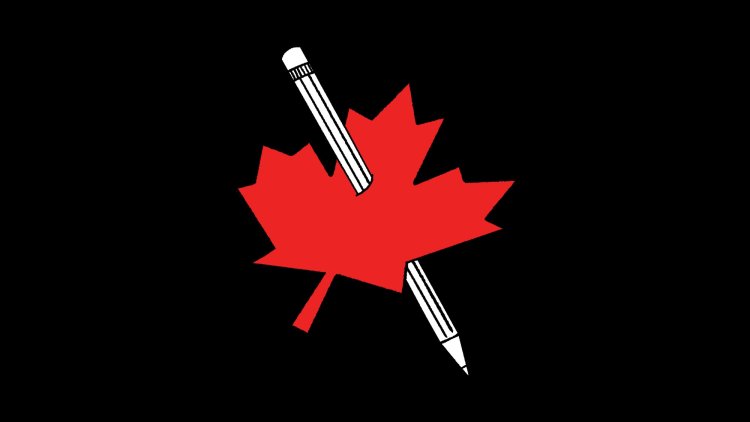Canada’s Extremist Attack on Free Speech
A bill making its way through the Canadian Parliament would impose draconian criminal penalties on hate speech and curtail people’s liberty in order to stop crimes they haven’t yet committed.

In 1984, George Orwell coined the term thoughtcrime. In the short story “The Minority Report,” the science-fiction author Philip K. Dick gave us the concept of “precrime,” describing a society where would-be criminals were arrested before they could act. Now Canada is combining the concepts in a work of dystopian nonfiction: A bill making its way through Parliament would impose draconian criminal penalties on hate speech and curtail people’s liberty in order to stop future crimes they haven’t yet committed.
The Online Harms Act states that any person who advocates for or promotes genocide is “liable to imprisonment for life.” It defines lesser “hate crimes” as including online speech that is “likely to foment detestation or vilification” on the basis of race, religion, gender, or other protected categories. And if someone “fears” they may become a victim of a hate crime, they can go before a judge, who may summon the preemptively accused for a sort of precrime trial. If the judge finds “reasonable grounds” for the fear, the defendant must enter into “a recognizance.”
A recognizance is no mere promise to refrain from committing hate crimes. The judge may put the defendant under house arrest or electronic surveillance and order them to abstain from alcohol and drugs. Refusal to “enter the recognizance” for one year results in 12 months in prison.
This is madness.
The proposed law, the result of efforts that began in 2019 after a terrorist attack in New Zealand, does many other things too. One section concerns the obligations of online platforms to police content. Another bears on the worthy goal of protecting children from viewing pornography and stopping the distribution of child-sexual-abuse material, raising the odds that the bill will pass with too little attention to its worst provisions. (In February, it passed its first reading in the House of Commons. Becoming law would require a second and third reading in that body, where amendments can be proposed; passage in the national Senate; and approval by the governor general.)
Even the bill’s most Orwellian sections have powerful supporters. Justin Trudeau’s government brought the bill before Parliament. Arif Virani, Canada’s minister of justice and attorney general, is championing it. “We need the ability to stop an anticipated hate crime from occurring,” he declared last week. “The Conservatives need to get on board. Now.” According to The New York Times, some version of the bill is likely to pass, because “Trudeau’s Liberal Party has an agreement with an opposition party to support government legislation.”
[Ali Breland: The MAGA internet calls for war]
Just countries do not punish mere speech with imprisonment, let alone life imprisonment. Just countries do not order people who have not committed and are not even accused of a crime to be confined to their home or tracked with an ankle bracelet. I have reasonable grounds to fear that the Trudeau government is going to trample on the civil rights of Canadians. That is hardly sufficient to secure the house arrest of its officials.
Earlier this year, the Canadian Civil Liberties Association urged substantial amendments to the legislation. “The broad criminal prohibitions on speech in the bill risk stifling public discourse and criminalizing political activism,” it warned. “The bill imposes draconian penalties for certain types of expression, including life imprisonment for a very broad and vaguely defined offence of ‘incitement to genocide,’ and 5 years of jail time for other broadly defined speech acts. This not only chills free speech but also undermines the principles of proportionality and fairness in our legal system.”
But amendments would not go far enough. No one who favors allowing the state to imprison people for mere speech, or severely constraining a person’s liberty in anticipation of alleged hate speech they have yet to utter, is fit for leadership in a liberal democracy. Every elected official who has supported the unamended bill should be ousted at the next opportunity by voters who grasp the fraught, authoritarian folly of this extremist proposal.
What's Your Reaction?




















